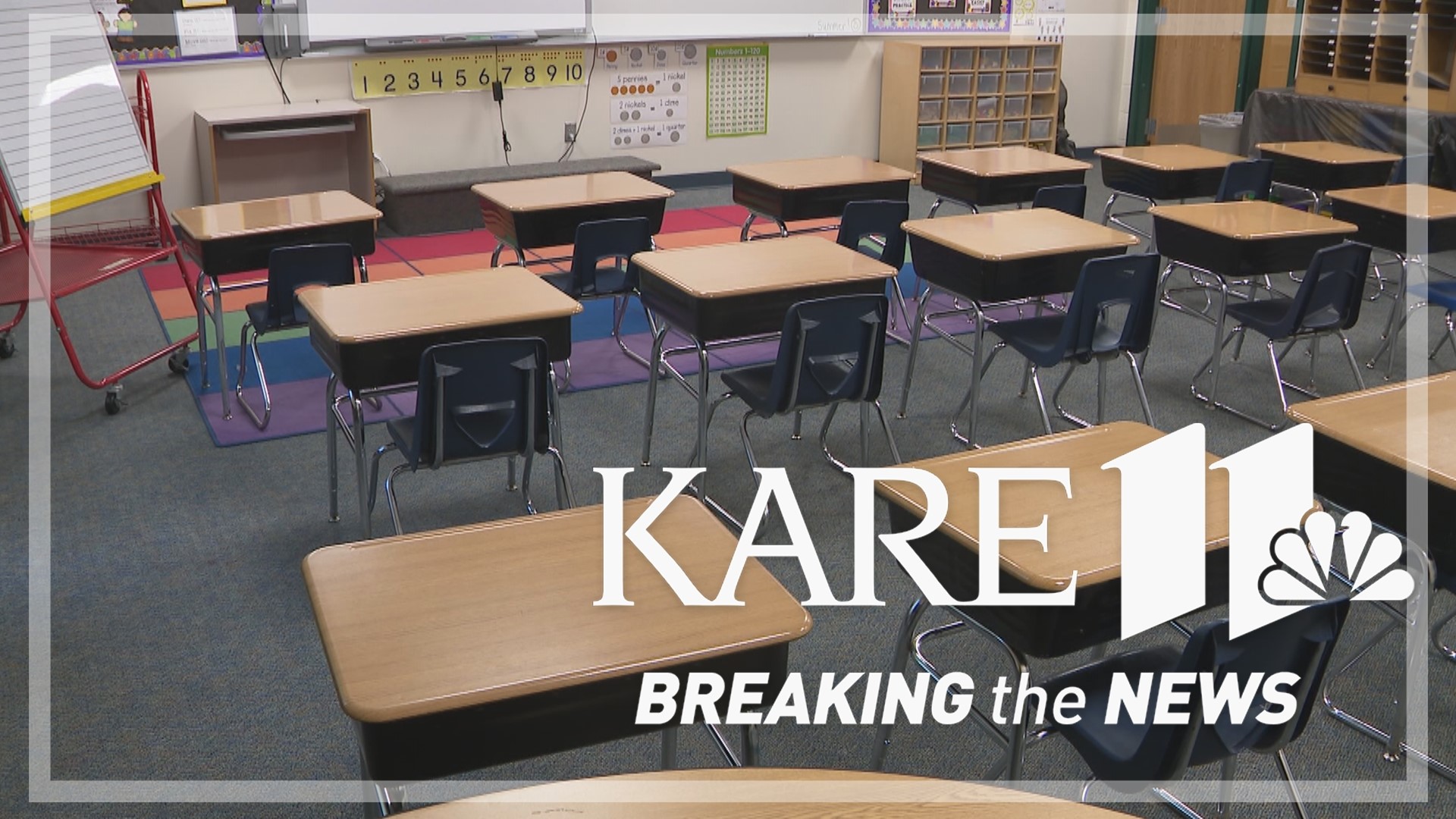MINNEAPOLIS — Jodi Rebuffoni's son, who has Down syndrome, started fifth grade this year at Kenny Community School in southwest Minneapolis.
But he hasn't spent much time inside the building so far.
"My son has not been in school most of the year because there's no special education staff in his school," Rebuffoni said. "There's no teacher and there has been kind of sporadic special education assistant staffing in the classroom, such that we're not able to actually bring him most of the days."
Rebuffoni learned Tuesday afternoon that Minneapolis Public Schools will have a permanent special education teacher at Kenny starting next week, followed hopefully by more support staff in the near future. The district has previously told KARE 11 that students with disabilities are still encouraged to come to school at Kenny and that some families have been given the option to transfer while MPS works on "identifying a long-term solution for families and students impacted by the staffing shortage."
"They're not denying that he can be there in school," Rebuffoni said, "but as a parent, he's not learning."
However, the issue of special education staffing shortages is not confined to Kenny Community School, nor is it confined to Minneapolis Public Schools. Saint Paul Public Schools, for example, currently report 22 special education openings, down from 42 at the start of the year.
In Anoka-Hennepin, a spokesperson said that "there are two main positions in Special Education services in high demand — teacher and paraeducator. Both are in short supply as the demand for special education services increases." The district, which employs 7,000, reported 313 special education openings at the start of the year, including 52 vacant special education teacher positions and 76 vacant paraeducator openings.
It's the same story across the country.
According to various reports, 49 out of 50 states have reported special education staff shortages in the last decade. A recent survey entering the 2022-23 school year also showed that 53 percent of public schools felt understaffed, with special education as the top concern.
"The issue of recruiting and retaining qualified special education teachers is not new to the pandemic," said Laura Stelitano, the research manager for the Center for Learner Equity. "Special education is consistently one of the most difficult to staff areas."
Stelitano and the Center for Learner Equity led a report this fall that found "reliance on underqualified teachers – particularly for special education positions – may be increasing." In general, the report showed that students with disabilities were among those disproportionately impacted by the pandemic during the 2021-22 school year, with staffing issues representing just one component of the problem.
"Whenever there's a shortage of teachers to hire, districts and schools may need to hire underqualified teachers or teachers who are emergency certified or not fully certified in the area they need to teach in," Stelitano said. "That's a real concern for kids with disabilities, who need their teachers to have that specialized training and understanding."
The question is, what can be done?
Stelitano suggested districts improve working conditions for teachers, such as including more time in the day for planning, in order to recruit and retain them.
"Just more on-the-job support," Stelitano said, "at a time when teaching is already really hard."
As a parent in the Minneapolis Public Schools, meanwhile, Jodi Rebuffoni called on lawmakers to boost special education funding and noted the enormous surplus Minnesota currently has to spend.
She's also awaiting a formal response from the district, following a complaint she filed with the Minnesota Department of Education alleging that MPS was not providing adequate special education staffing for her son as required by federal law.
"I really hope," Rebuffoni said, "this sheds light on a really significant problem."
Watch more Breaking The News:
Watch all of the latest stories from Breaking The News in our YouTube playlist:

